Recovery is about more than just stopping the use of drugs or alcohol. It’s about healing your whole self—mind, body, and spirit. When you’ve been through addiction or a mental health crisis, it can feel like parts of your life have been shattered. Spiritual practices can help you find a sense of peace, purpose, and connection as you rebuild. No matter what your beliefs are, there’s a spiritual approach that can strengthen your recovery and help you feel grounded.
Why Spirituality Matters in Recovery
Spirituality isn’t about following a specific religion—although it can include religious practices if that’s meaningful to you. It is about connecting to something greater than yourself and finding meaning in your life.
When you’re in recovery, your spirit may feel tired, broken, or disconnected. Addiction and mental health struggles can leave you feeling lost, ashamed, or alone. Spiritual practices help you reconnect to yourself, to others, and to the world around you. They can give you a sense of calm in moments of chaos, provide guidance when you feel unsure, and help you stay motivated to keep going.
Different Types of Spiritual Practices
Spirituality looks different for everyone. What matters is finding practices that work best for you. Here are some examples:
Prayer
Prayer is a way to express gratitude, ask for guidance, or find strength. You might pray to a higher power, God, or simply direct your thoughts and feelings out into the universe. Prayer can bring comfort and help you feel supported, especially in difficult moments.
Meditation
Meditation helps you slow down, quiet your mind, and reconnect with yourself. You don’t have to sit for hours in silence; even a few minutes of deep breathing or guided meditation can reduce stress and help you focus on your recovery goals.
Mindfulness
Mindfulness is about being fully present in the moment, without judgment. It can be as simple as noticing your breath, savoring a meal, or listening deeply during a conversation. Practicing mindfulness can help you manage cravings, regulate emotions, and feel more at peace in your daily life.
Nature Connection
Spending time outdoors is a powerful spiritual practice. Being in nature can remind you of the beauty and stability in the world, helping you feel grounded and calm. A simple walk, sitting under a tree, or watching a sunset can be deeply restorative.
Religious Practices
If faith is part of your life, attending church, reading scripture, or engaging in religious rituals can be an important part of your recovery. Religious communities often provide a strong support network and a sense of belonging.
12-Step Programs and Higher Power
Many recovery programs, like Alcoholics Anonymous (AA) and Narcotics Anonymous (NA), encourage connecting with a higher power. This doesn’t have to mean God in a traditional sense—it’s about leaning on something greater than yourself for strength and guidance.
Incorporating Spirituality into Your Daily Routine
Integrating spirituality into your recovery doesn’t require a dramatic lifestyle change. Small, intentional practices can help you feel more grounded and connected over time. Here are some simple ways to weave spirituality into your day:
- Start your day with intention. Begin your morning with a moment of stillness—whether through prayer, meditation, or a deep breath of gratitude. This small act can set a positive tone for the rest of your day.
- Pause for mindful moments. Throughout the day, take a few quiet pauses to check in with yourself. These mindful breaks help you stay calm and centered, even during stressful times.
- Reflect at the end of the day. Journaling, prayer, or simply thinking about what you’re grateful for can help you process your emotions and end the day with peace.
- Join a supportive community. Support groups like AA, NA, or other recovery-focused gatherings often include spiritual elements that encourage connection and remind you that you’re not alone.
- Create a sacred space. Dedicate a quiet corner in your home for reflection, meditation, or prayer. A candle, soft music, or meaningful objects can transform this space into a peaceful sanctuary.
- Embrace time in nature. Make it a habit to spend time outdoors, whether it’s a morning walk or a weekend hike. Nature can help you feel connected and grounded.
- Nourish spiritual connections. Share meaningful conversations, attend worship services, or join meditation groups. Connecting with others can strengthen your spirit and provide encouragement on your recovery path.
We’re Here to Support You
At Pacific Sky Recovery Center in Bellevue, Washington, we believe recovery is about healing every part of you. Spirituality can play a vital role in that process, no matter your beliefs. If you’re ready to take the next step toward healing, we’re here to walk alongside you. Reach out today to learn more about our programs and how we can help you integrate spirituality into your recovery.











